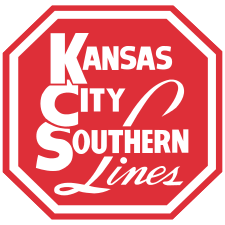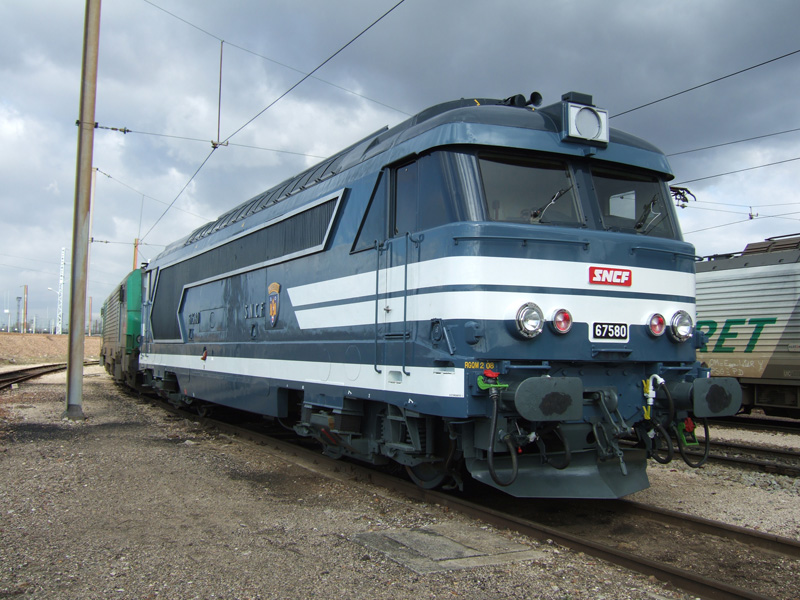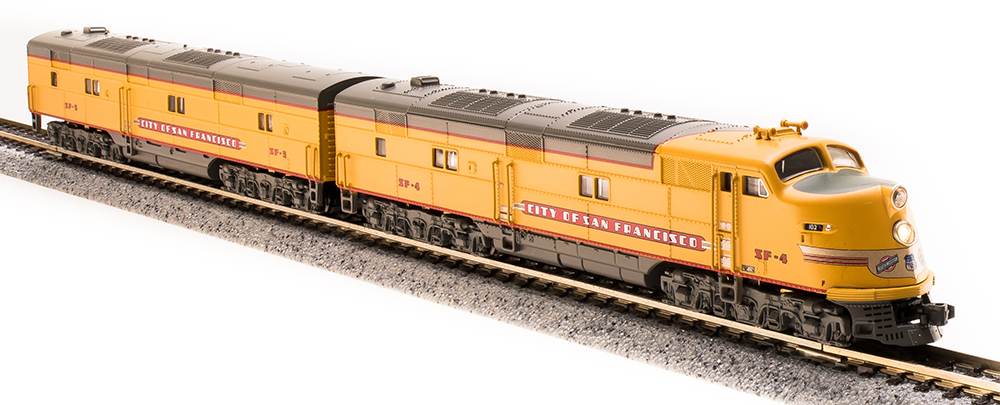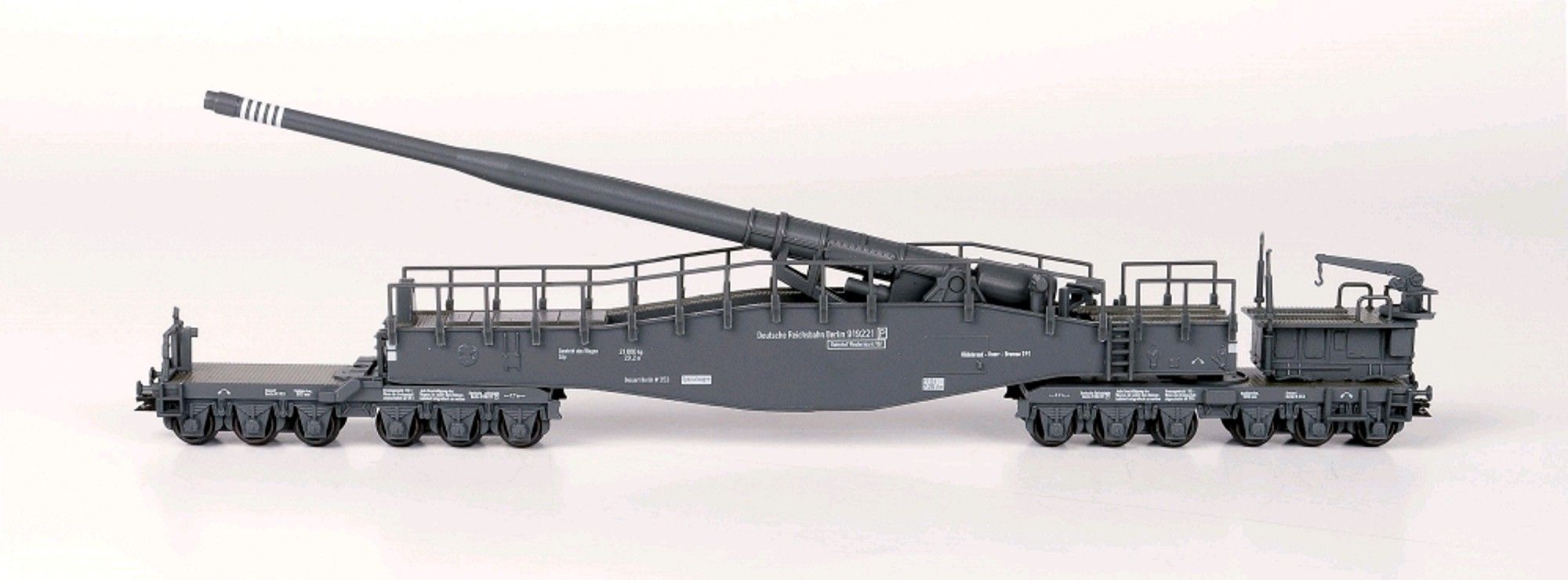Specific Item Information: Paragon4 Sound/DC/DCC
Model Information:
- Precision Drive Mechanism engineered for continuous heavy load towing and smooth slow speed operation
- Premium Caliber Painting with Authentic Paint Schemes
- Prototypical Light Operation with Golden White LED Headlight, Rear Light
- ABS Body with Die Cast chassis for Maximum Tractive Effort
- (2) Operating MicroTrains #1015 or Compatible Couplers
- Separately Applied Handrails, Ladders, Whistle, and Brass Bell
- Will Operate on Code 55, 70, 83 & 100 Rail
- Recommended Minimum Radius: 9.75 inches
- Shipping Weight: 0.5 lbs
- Box Dimensions: L8.5" x W2.75" x H1.25"
DCC Information:
- Paragon3 Sound & Operation System FEATURING ROLLING THUNDER(TM) with Authentic Sounds and Prototypical Operation in both DC and DCC environments
- Integral DCC Decoder with Back EMF for Industry Best Slow Speed Operation in DC and DCC
- Operates in DC & DCC (use DCMaster for DC Sound)
- Record & Play Operation - Records and plays back sounds and movements once or repeatedly for automatic operation
- 16-bit Sample Rate for exceptional high frequency sound clarity
- Alternate Whistle / Horn where applicable for locomotive with air horn and steam whistle - both the main whistle and alternate can be easily played
- Adjustable bell ringing interval for faster or slower bell
- Numerous user-mappable functions with available keys
- Passenger Station Ambient Sounds - Controlled with Function Key
- Freight Yard related radio chatter - Controlled with Function Key
- Lumber Yard Ambient Sounds - Controlled with Function Key
- Farm related radio chatter - Controlled with Function Key
- Crew Radio Communications - Controlled with Function Key
- Maintenance Yard related radio chatter - Controlled with Function Key
- Demo Mode for display and demonstrations
- Simple Programming with Integral DCC Decoder
- Individually adjustable sound volumes for most effects
Road Name History: KCS began (with a different name) in 1890 under the direction of Arthur Stilwell for the purpose of building a railroad from Kansas City directly south along the Missouri – Kansas, Arkansas – Oklahoma, and Louisiana – Texas borders to the Gulf of Mexico. At the point where the railroad met the Gulf, Stillwell built a port complex and named it after himself, Port Arthur, Texas. Two years later, the company defaulted on a loan, Stilwell was kicked out and they changed the name of the railroad to Kansas City Southern. Stilwell went on to build the Kansas City Mexico & Orient.
The KCS steam fleet was, well, peculiar. They were the only railroad to use 0-6-6-0’s, not as heavy switchers, not as pushers, but as mainline road engines. 2-8-8-0’s were also used for heavy road service with Santa Fe types and Consolidations filling out the freight roster. 11 Pacifics handled the passenger trains. They were odd first in that they had 2 sand domes (rare on passenger power.) Second, they had a high mounted headlight but without a number plate in the middle of the smokebox door, giving the front a strange “faceless” appearance. A few of these Pacifics assigned to the Kansas City – Port Arthur “Flying Crow” were equipped with air horns that sounded like a cawing crow… Really! KCS also had 2 Shays used to muscle cars up and down the 10% grades of many Kansas City industrial spurs. (If you’ve been to Kansas City, you will understand why.) The pinnacle of the fleet was the J class 2-10-4’s, purchased to replace the 0-6-6-0’s in 1937. These were the last Texas types built by Lima and had sleek, jacketed boilers and enclosed cabs.
In 1939, the KCS acquired the Louisiana & Arkansas which ran from Dallas east to Shreveport and then New Orleans. Actually, it was the owners of the L&A that bought the KCS but for charter reasons, the deal was arranged so that KCS took control of L&A. L&A remained semi-autonomous in an SP-Cotton Belt sort of way. This brought the KCS system to over 1,660 miles (between Grand Trunk Western and Delaware & Hudson in relative size.) The L&A image began to fade away in the 1960s but it wasn’t fully merged into KCS until 1992.
Dieselization came primarily from EMD with E’s pulling the Flying Crow and Southern Belle, and F’s in freight service. These were delivered in the classic red, black and yellow with red being dominant on the freight units and yellow on the passenger units. A-B-B-A sets of Erie Builts were also used in freight service but were notorious for breaking knuckles on the hog-back hills of the Ozarks.
Switchers and first generation hood units were delivered in black with white trim (much like Illinois Central) with the name spelled out on the long hood. Hood units and switchers came from EMD, Alco, Baldwin and FM.
In the 1960s, the paint scheme was simplified to a solid red. This became known as Deramus Red after the line’s CEO William Deramus II. Deramus’s son (William III) was head of Chicago Great Western and later M-K-T, both of which used similar reds. While William II was a reasonably adept CEO, his son William III was less successful, at least as far as the railroad was concerned. Under William III, track deteriorated and customers fled, which in turn permitted him to cut more service and staff. Fewer, longer trains were dispatched. Meanwhile William III was pouring available cash into diversifying into less regulated industries. By the 1970s, KCS faced a triple threat. Track condition was at an all time low, the first generation diesels were wearing out and tonnage was increasing. A new CEO began to turn the railroad around. The red paint scheme was dumped for white with red lettering. Grain moving down from Kansas City was joined by petro-chemicals moving up from the coast. Powder River Coal joined the mix during this period.
KCS’s diversified holdings, including the Janus Fund, made KCS ripe for takeover. In 1985, leftist fundraiser George Soros attempted a hostile takeover but was foiled first by a real estate developer and then by a Deramus successor who had since moved to Hallmark Cards and then bought a large block of KCS stock.
Now a rousing success, KCS spun off Janus and other holdings and kept the railroad because that is where the REAL money was! In 2006, the Southern Belle red, yellow, and black paint scheme was re-introduced. A version of it was even applied to some new KCS freight cars (KCS freight cars had been notorious dull for decades with few having anything more than reporting marks to trumpet their owner.)
The KCS steam fleet was, well, peculiar. They were the only railroad to use 0-6-6-0’s, not as heavy switchers, not as pushers, but as mainline road engines. 2-8-8-0’s were also used for heavy road service with Santa Fe types and Consolidations filling out the freight roster. 11 Pacifics handled the passenger trains. They were odd first in that they had 2 sand domes (rare on passenger power.) Second, they had a high mounted headlight but without a number plate in the middle of the smokebox door, giving the front a strange “faceless” appearance. A few of these Pacifics assigned to the Kansas City – Port Arthur “Flying Crow” were equipped with air horns that sounded like a cawing crow… Really! KCS also had 2 Shays used to muscle cars up and down the 10% grades of many Kansas City industrial spurs. (If you’ve been to Kansas City, you will understand why.) The pinnacle of the fleet was the J class 2-10-4’s, purchased to replace the 0-6-6-0’s in 1937. These were the last Texas types built by Lima and had sleek, jacketed boilers and enclosed cabs.
In 1939, the KCS acquired the Louisiana & Arkansas which ran from Dallas east to Shreveport and then New Orleans. Actually, it was the owners of the L&A that bought the KCS but for charter reasons, the deal was arranged so that KCS took control of L&A. L&A remained semi-autonomous in an SP-Cotton Belt sort of way. This brought the KCS system to over 1,660 miles (between Grand Trunk Western and Delaware & Hudson in relative size.) The L&A image began to fade away in the 1960s but it wasn’t fully merged into KCS until 1992.
Dieselization came primarily from EMD with E’s pulling the Flying Crow and Southern Belle, and F’s in freight service. These were delivered in the classic red, black and yellow with red being dominant on the freight units and yellow on the passenger units. A-B-B-A sets of Erie Builts were also used in freight service but were notorious for breaking knuckles on the hog-back hills of the Ozarks.
Switchers and first generation hood units were delivered in black with white trim (much like Illinois Central) with the name spelled out on the long hood. Hood units and switchers came from EMD, Alco, Baldwin and FM.
In the 1960s, the paint scheme was simplified to a solid red. This became known as Deramus Red after the line’s CEO William Deramus II. Deramus’s son (William III) was head of Chicago Great Western and later M-K-T, both of which used similar reds. While William II was a reasonably adept CEO, his son William III was less successful, at least as far as the railroad was concerned. Under William III, track deteriorated and customers fled, which in turn permitted him to cut more service and staff. Fewer, longer trains were dispatched. Meanwhile William III was pouring available cash into diversifying into less regulated industries. By the 1970s, KCS faced a triple threat. Track condition was at an all time low, the first generation diesels were wearing out and tonnage was increasing. A new CEO began to turn the railroad around. The red paint scheme was dumped for white with red lettering. Grain moving down from Kansas City was joined by petro-chemicals moving up from the coast. Powder River Coal joined the mix during this period.
KCS’s diversified holdings, including the Janus Fund, made KCS ripe for takeover. In 1985, leftist fundraiser George Soros attempted a hostile takeover but was foiled first by a real estate developer and then by a Deramus successor who had since moved to Hallmark Cards and then bought a large block of KCS stock.
Now a rousing success, KCS spun off Janus and other holdings and kept the railroad because that is where the REAL money was! In 2006, the Southern Belle red, yellow, and black paint scheme was re-introduced. A version of it was even applied to some new KCS freight cars (KCS freight cars had been notorious dull for decades with few having anything more than reporting marks to trumpet their owner.)
Brand/Importer Information: 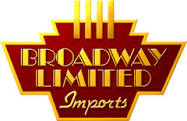 Broadway Limited Imports, LLC defines itself as "the world's foremost producer of top-quality HO and N scale model trains".
Broadway Limited Imports, LLC defines itself as "the world's foremost producer of top-quality HO and N scale model trains".
The company was founded in 2002 and introduced its first N scale model in 2009.
Broadway Limited Imports is composed of a team of 15 fun loving individuals who are dedicated to creating the most realistic model railroading experience possible, with the best customer service possible.
The Broadway Limited Imports headquarters is located in Ormond Beach, Florida at 9 East Tower Circle. It's just under an hour's drive from Disney World.
About Broadway Limited Imports.

The company was founded in 2002 and introduced its first N scale model in 2009.
Broadway Limited Imports is composed of a team of 15 fun loving individuals who are dedicated to creating the most realistic model railroading experience possible, with the best customer service possible.
The Broadway Limited Imports headquarters is located in Ormond Beach, Florida at 9 East Tower Circle. It's just under an hour's drive from Disney World.
About Broadway Limited Imports.
Item created by: CNW400 on 2023-05-01 11:30:07
If you see errors or missing data in this entry, please feel free to log in and edit it. Anyone with a Gmail account can log in instantly.
If you see errors or missing data in this entry, please feel free to log in and edit it. Anyone with a Gmail account can log in instantly.



